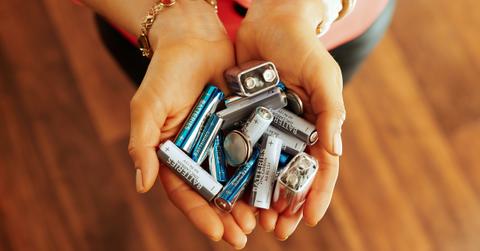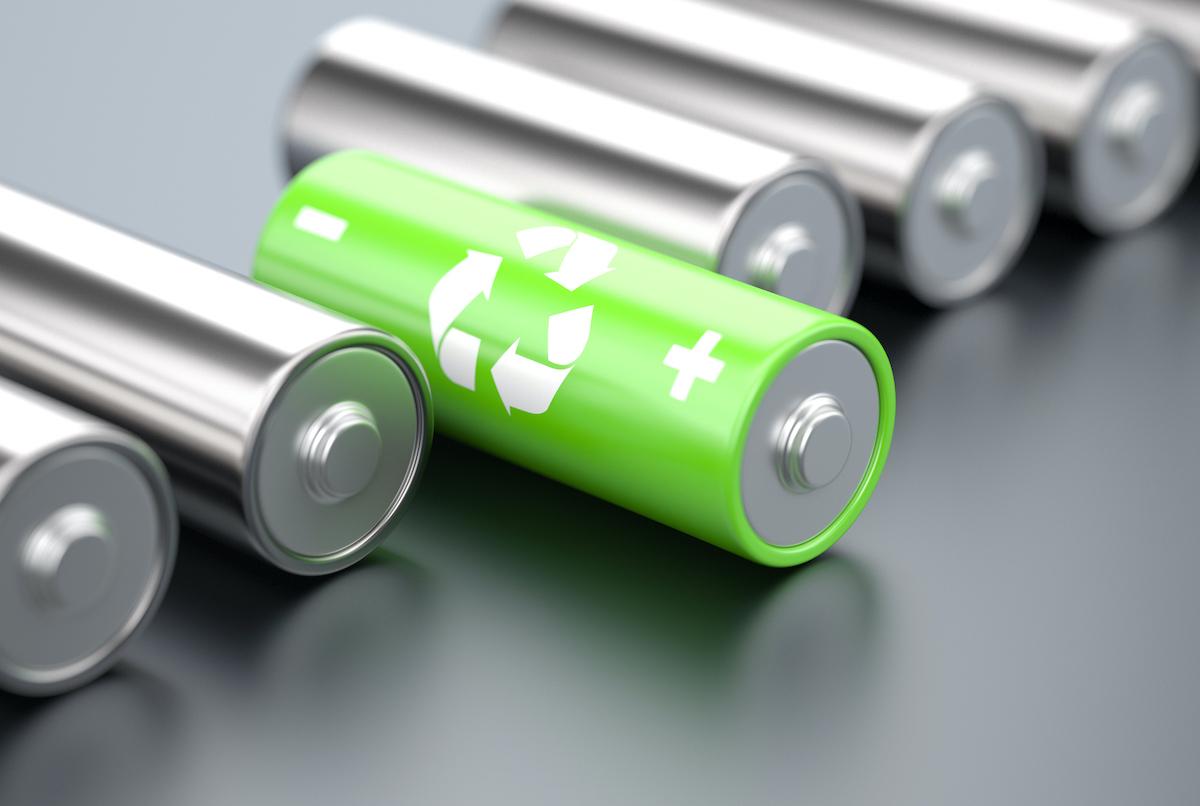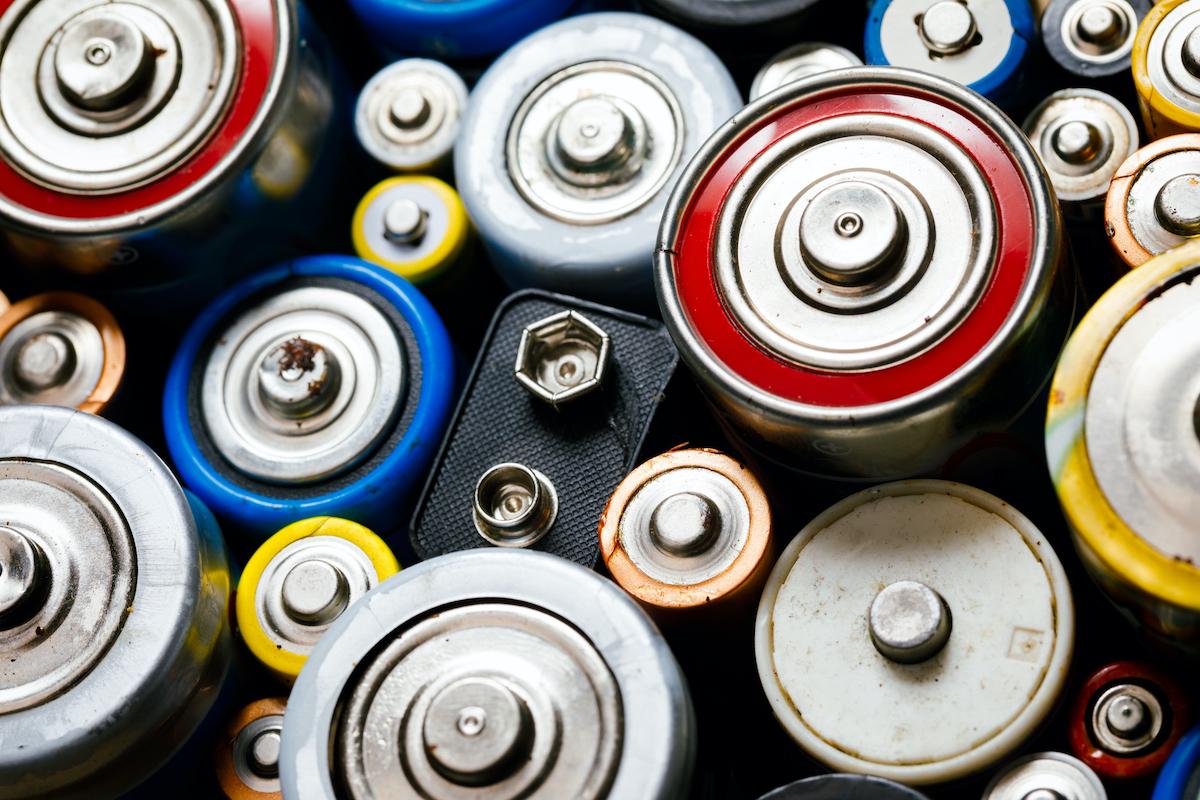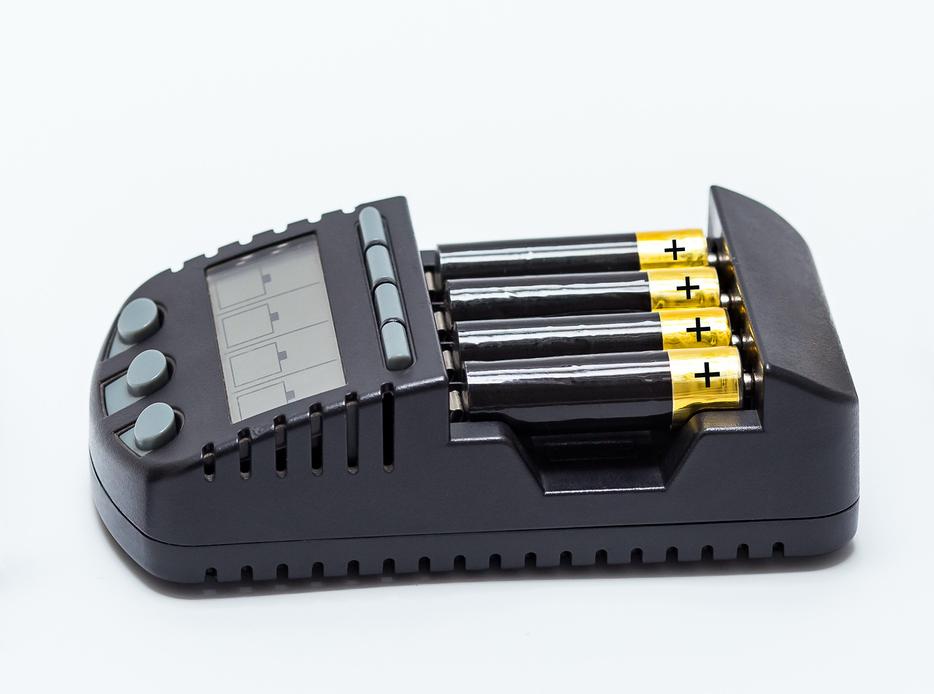How to Easily Recycle Batteries of All Kinds
Batteries can easily be recycled at numerous drop-off points around the U.S.
Updated March 26 2024, 2:56 p.m. ET

Whether you have single-use alkaline batteries, rechargeable batteries, or any other type of dead battery laying around your house, you may be wondering how to recycle household batteries. Fortunately, when it comes to recycling batteries, there are endless options.
Read on for our guide to household battery recycling across the U.S., no matter where you live.
Can you recycle batteries?
Pretty much all kinds of batteries are recyclable. While most municipalities do not accept them in curbside recycling, there are numerous stores and programs across the U.S. — many of which are big-box stores that can be found near just about any town — where you can drop off batteries to be recycled.
Batteries are the most recycled product in the U.S.

Not only can Americans recycle batteries, but Americans do recycle them. In 2014, the Environmental Protection Agency (EPA) reported a 99 percent recycling rate for lead batteries. Three years later, a 2017 study found that lead batteries have a recycling rate of 99.3 percent in the U.S., making them the country’s most-recycled product.
How to find battery recycling near you:
If you have a drawer full of dead batteries that you’d like to recycle, we suggest utilizing Earth911’s Where to Recycle tool. There, you can enter what item you’d like to recycle (just search “batteries” or the specific kind of battery you have) and your zip code. Earth911 will pull up a list of places in your area with battery recycling bins.
Most of these locations will probably be stores, but other options may include recycling centers, safe drop-off events held by your municipality, or mail-in programs.
Another resource for finding local battery recycling drop-off points is Call2Recycle, an organization that has more than 25,000 drop-off sites in North America. You can look up Call2Recycle’s drop-off locations on its website, and you can find the organization’s bins in many chain stores — more on that below.
Before you head to a store or event, it can’t hurt to call ahead to confirm their hours and that they are still operating their battery recycling program.
These stores recycle batteries.

The following big-box stores often have battery recycling bins, meaning you can stop by and drop your batteries off to be recycled. Stores with these programs include:
Staples Battery Recycling
Staples stores accept the following kinds of batteries for recycling:
- Lithium ion (Li-Ion)
- Nickel metal hydride (Ni-MH)
- Nickel zinc (Ni-ZN)
- Non-rechargeable lithium NEW
- Rechargeable nickel cadmium (Ni-Cd)
- Single-use alkaline NEW
- Small sealed lead acid (SSLA/Pb).
This recycling program is in all Staples stores, except for the "urban stores" in New York City and Washington, D.C. And if you bring in old batteries, Staples will give you a coupon in exchange.
Staples previously did not accept single-use alkaline batteries for recycling, but in March 2024, the company expanded its free in-store recycling program to include single-use alkaline and non-rechargeable lithium batteries.
The Home Depot Battery Recycling
The Home Depot has Call2Recycle battery recycling bins in all its stores, and the bins only accept rechargeable batteries that weigh up to 11 pounds.
Lowe’s Battery Recycling
Lowe’s is also partnered with Call2Recycle, and has bins at more than 1,700 Lowe’s stores and distribution centers where you can drop off rechargeable batteries.
RadioShack Battery Recycling
Various RadioShack locations recycle all household batteries (including single-use alkaline batteries!) via Call2Recycle — you can find participating locations here.
Batteries Plus Battery Recycling
Batteries Plus stores, which are located all across the U.S., have an extensive battery recycling program, which includes single-use alkaline batteries.
More specifically, you can bring in the following sorts of batteries:
- Lead Acid
- Nickel Cadmium
- Nickel Metal Hydride
- Lithium Ion & Polymer
- Household
- Specialty.
Rechargeable batteries are a more eco-friendly option.

If these batteries are rechargeable, why do they need to be recycled at all? Unfortunately, rechargeable batteries only last a few years before they die and need to be replaced. But still, rechargeable batteries are a more sustainable option than single-use batteries.
Rechargeable batteries typically cost more upfront than single-use batteries — not to mention, you’ll need to purchase a battery charger, too. But the good news is, once you use the batteries multiple times, you will make up the upfront cost and hopefully save money in the long run.
Since they’re reusable, rechargeable batteries are overall a much more eco-friendly and cost-effective alternative to single-use batteries. Not only that, but once they die, they are easier to recycle than single-use alkaline batteries.
Is it illegal to throw away batteries?
It is illegal in California to throw single-use alkaline batteries in the trash; and in New York City, it's illegal to throw rechargeable batteries of any kind in the trash.
But just because it’s technically legal to send batteries to landfill in many places doesn’t mean we should. While battery disposal is a controversial topic, there is evidence that batteries can leach toxic chemicals and pollutants into groundwater from the landfill, and that they could even overheat and start a fire in the trash, according to Consumer Reports.
Basically, batteries are highly recyclable — and there are numerous drop-off points across the country — so for most of us, there’s really no excuse not to recycle batteries.
This article, originally published on May 1, 2020, has been updated.